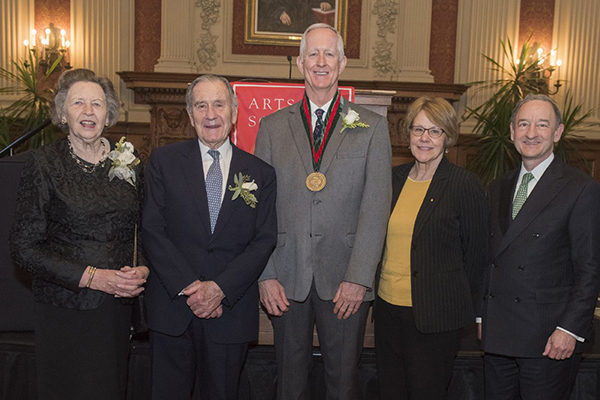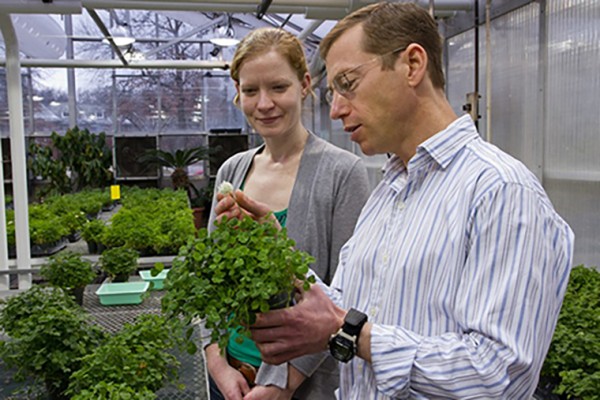Vierstra named fellow of American Society of Plant Biologists
The American Society of Plant Biologists (ASPB) has named Washington University in St. Louis’ Richard Vierstra a fellow of ASPB.
Vierstra installed as the George and Charmaine Mallinckrodt Professor
Richard D. Vierstra was installed as the inaugural George and Charmaine Mallinckrodt Professorship at a ceremony held March 7 in Holmes Lounge. The professorship resides in Arts & Sciences and is designated for the field of plant biology, an area of great strength, and even greater potential, at Washington University.
How repeatable is evolutionary history?
Some clover species have two forms, one of which releases cyanide to discourage nibbling by snails and insects and the other of which does not. A scientist at Washington University in St. Louis found that this “polymorphism” has evolved independently in six different species of clover, each time by the wholesale deletion of a gene. The clover species are in a sense predisposed to develop this trait, suggesting that evolution is not entirely free form but instead bumps up against constraints.
Researcher gives hard thoughts on soft inheritance
Richards has observed the inheritance of epigenetic factors in plants.Eric Richards, Ph.D., professor of biology at Washington University in St. Louis, writing in the May issue of Nature Reviews Genetics, analyzes recent and past research in epigenetics and the history of evolution and proposes that epigenetics should be considered a form of soft inheritance, citing examples in both the plant and mammalian kingdoms.



